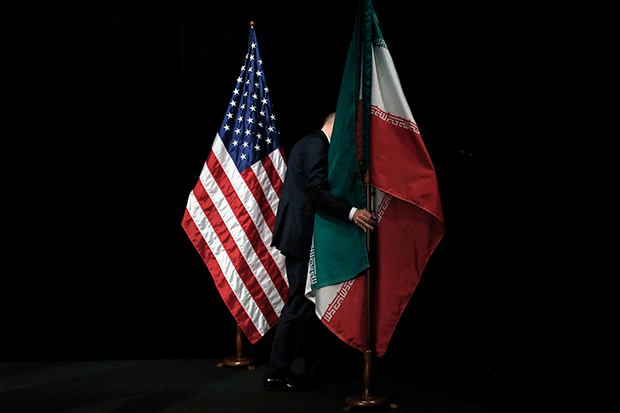In the Middle East, they want to know: How will the election affect the standoff with Iran?
 Photo/Getty Images
Photo/Getty ImagesIn the run-up to the presidential election, BrandeisNOW asked faculty to provide analysis and insight into some of the most pressing issues facing the country. This article is part of the series.
Among the many questions surrounding the 2020 U.S. election for the Middle East, one looms largest: How will the result of the U.S. elections affect the standoff with Iran?
This impasse affects U.S. policy throughout the region, including American support for the disastrous Saudi-led war in Yemen; demands placed on the weak Iraqi government to confront militias; and willingness to engage in reconstruction in Syria and Lebanon.
Uncertainty about the willingness and ability of the U.S. to check growing Iranian regional influence is bringing together countries threatened by Iran, such as Israel and the UAE, and possibly paving the way for a long-term partnership between China and Iran.
A military confrontation between the U.S. and Iran remains possible, and it is far from clear what direction the U.S.-Iranian relationship will go under either Trump or Biden.
President Trump pulled the U.S. out of the three-year-old Iran nuclear deal in 2018 and unilaterally imposed a variety of sanctions on Iran. This so-called “maximum pressure campaign” is meant to increase leverage and force Iran to return to the bargaining table, where a “better deal” that both constrains Iran’s nuclear program and addresses its other “malign activities” can be reached. These other activities include Iran’s ballistic missile program, threats against Israel and other U.S. allies, and its support for militias in Iraq, Lebanon, and Syria.
So far, negotiations have not begun, despite the sanctions hindering Iran’s ability to address the COVID-19 crisis. Meanwhile, the two sides have engaged in a series of provocations. The U.S. continues to ratchet up sanctions and killed a prominent Iranian general in Iraq; Iranian-affiliated militias routinely rocket American assets in Iraq, and Iran attacked tankers in the Gulf and launched a cruise missile strike on Saudi oil facilities.
An escalating military confrontation between the U.S. and Iran or its proxies could occur, especially because red lines are no longer clear.
If Trump wins reelection, he might soften the U.S. stance – perhaps by easing sanctions or offering tangible concessions on other issues – to jumpstart negotiations and get a better and broader deal than the one negotiated under his predecessor. Trump may see such a deal as his signal foreign policy achievement and Nobel Peace Prize ticket. Or he could order military strikes on Iranian nuclear facilities or give Israel a green light for such strikes. Even if Trump loses the election, such strikes could occur before his successor takes office in January.
For his part, Biden promises to return the U.S. to the nuclear deal – if and only if Iran returns to strict compliance with it – and to work with allies in “follow-on negotiations” to strengthen and extend the deal and address other issues of concern, including Iran’s human rights abuses.
But Iran could demand compensation for lost oil revenues and suffering under Trump’s sanctions and for returning to a deal that the U.S. abandoned first. And a Biden administration will face considerable pressure, both domestically and from allies in the region, to not simply turn back the clock; Iran’s regional influence is greater than it was in 2015.
Since the U.S. withdrew from the nuclear deal, Iran has been reneging on specific commitments it made and reportedly has stockpiled 10 times as much low-enriched uranium as it had when Trump took office.
Regardless of who wins the election on November 3, the question of the direction of U.S.-Iranian relations will continue to cast a shadow over the entire Middle East.
David Siddhartha Patel is associate director of research at the Crown Center for Middle East Studies.
Categories: Alumni, International Affairs, Research





